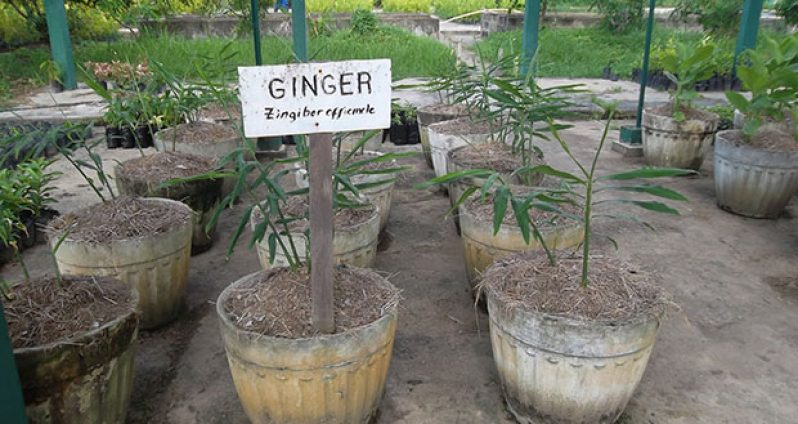By now many persons are familiar with the term “diversification” in the agriculture sector. A visit to the market place would show the wide assortment of fruits and vegetables grown locally.

For years, the National Agricultural Research and Extension Institute (NAREI) has been working assiduously in the areas of research and development and the transfer of technology to farmers to achieve this objective of the Ministry of Agriculture.
The Institute is currently engaged in several projects across the country. These include trials on spices, carrot, broccoli, cauliflower, Irish Potato, sweet potato, watermelon, hot peppers, sweet peppers, breadfruit and cassava. Some of them are being conducted at NAREI’s facilities and others on farms owned by private farmers.
These trials are being conducted to identify which conditions are suitable for a particular plant variety. During the trial period factors such as soil type, fertilizer, pest and disease control, and the growth of rate of the variety are taken into consideration. The information obtained guides NAREI as to which technology is transferred to farmers.
The diversification initiative does not only focus on the introduction of new or exotic crops to Guyana. NAREI is seeking to introduce new varieties for crops such as sweet potato, breadfruit, sweet pepper, cassava and watermelon for food security purposes. In event, pest or diseases or other elements destroy a particular variety there are others remaining for consumption. Such safeguard is necessary in light of climate change.
Chief Executive Officer of NAREI, Dr. Oudho Homenauth during a recent interview with the Government Information Agency emphasized the importance of diversification in agriculture. He explained that core to the diversification initiative is the production of highly nutritional crops for food security. The production of these crops could also help to reduce the food import bill, generate wealth and provide employment opportunities.

He related that NAREI is conducting trials on cauliflower and broccoli. Once grown in shade houses these two crops could be produced in Guyana. “People may say they are imported in small quantities but these attract very high prices at the supermarkets, which mean there is a demand for them…We believe farmers can produce these crops and even look at exporting in the later stage,” Dr. Homenauth added.
But for the diversification initiative to produce results farmers need to adopt modern technologies in their farming practices. Some farmers are already on this path. Khedu Deonarine, a cash crop farmer at Laluni, approached NAREI a few months ago to conduct a plastic mulch trial at his farm.
This gave NAREI the opportunity to setup a demonstration plot for a scotch bonnet pepper trial. NAREI provided all the resources to establish the plot while Deonarine provides the labour and manure.
“The trial is going excellent…we did one with the plastic mulch and one without…we are looking at the progress and the plants with the plastic mulch are growing better…and they did not get problem with pest and disease,” he said.
This trial is equally beneficial to NAREI and the farmer. The data obtained from this trial would enable NAREI to transfer knowledge and allow Deonarine to establish his sweet pepper farm using plastic mulch. He already has sweet pepper seedlings in a shade house waiting to be transplanted.




.png)









